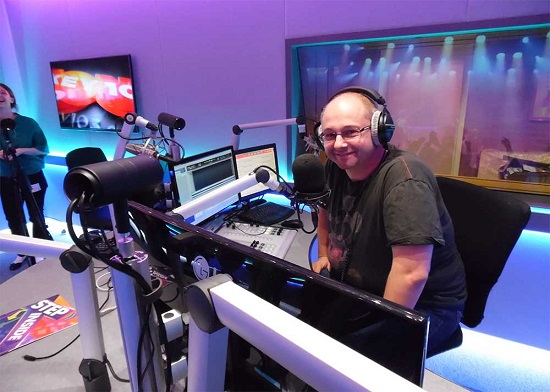
-
Prerequisites
– High school diploma and above
– General culture and media culture in particular
– Proficiency in Arabic language
-
Course Description
Abbasid poet Bashar ibn Burd said “ear sometimes loves before the eye” confirming to us today’s importance of radio as a means of communication. And contrary to what was expected, this importance still solid in spite of all modern digital means of communication our recent world has ever known. Wars and natural disasters have demonstrated that radio remains, especially in these cases, the lightest and least expensive and most flexible means in terms of movement and broadcasting. It also allows the listener to exercise other activities when listening to it, as he/she can do so at anytime and anywhere. In today’s digital era, radios began to move to new broadcasting platforms such as the Internet and mobile phones, and they recently sprung up in the world leading to increasing demand for media professionals in the areas of conception and presentation of radio programs. This course enables participants to enter this world and form of a thorough idea of the basic principles on the subject.
-
Course Objective
At the end of the course, participants should:
– Understand the process of the conception and presentation of radio programs and its principles
– Cultural and creative skills that radio programs presenter should acquire.
– The attainment of work skills within the radio team
– Recognize the process of implementing a radio program with professionalism and creativity
-
Course Outline
– Characteristics and conditions of radio writing:
– Writing for the ear: language and style
– The structure of the radio news story
– Drafting a radio text through news agencies, press articles and interviews …
– Headings creation, introductions and link texts
– Importance of sound/voice in radio work :
– The importance of sound/voice in radio work
– Shed light on the sound/voice features, characteristics and its impact on the recipient/listener
– Control of sound/voice and adjustment to music
– Communication techniques between broadcaster and sound manager
– Basics of radio interviews:
– The basic principles that control
– Conception and implementation stages of radio interview
– How to build and re-build radio interview (if necessary)
– Program set up and execution:
– Preparation of the program schedule/agenda and get ready to enter the studio
– Behaviors that should be followed during the program/broadcast
– Preparation and execution of a number of short programs, discussed and corrected
-
Course Benefits
A graduation certificate accredited by Oakridge Academy.
